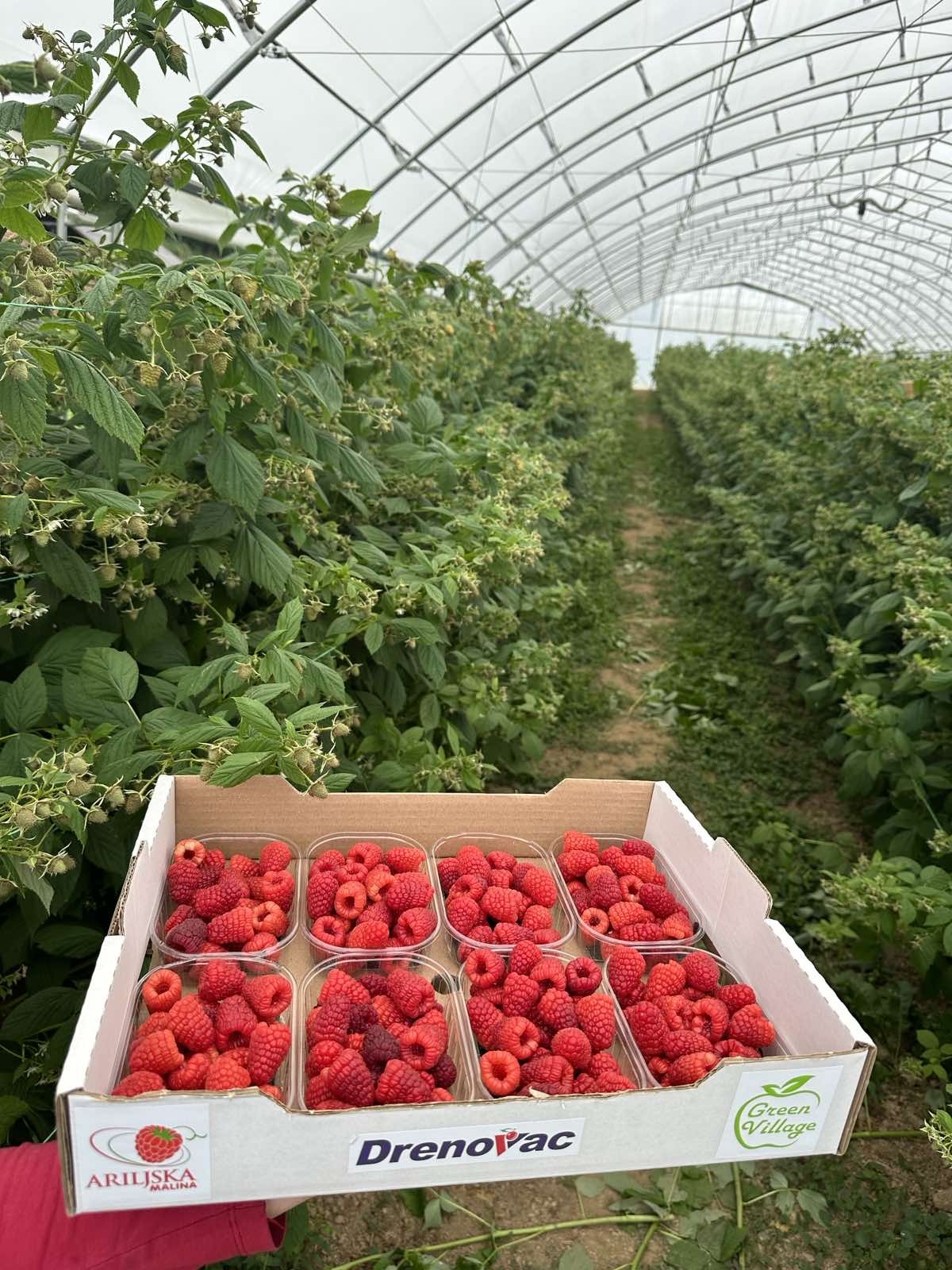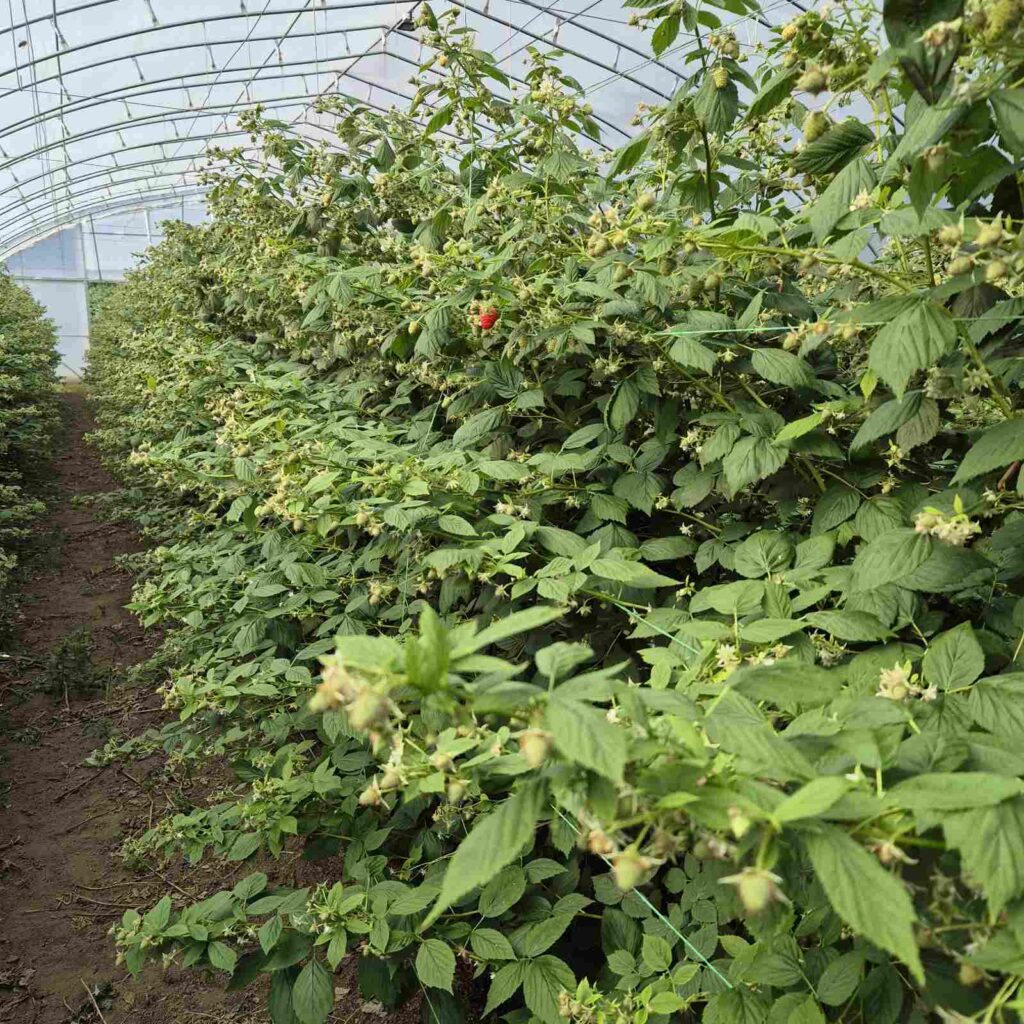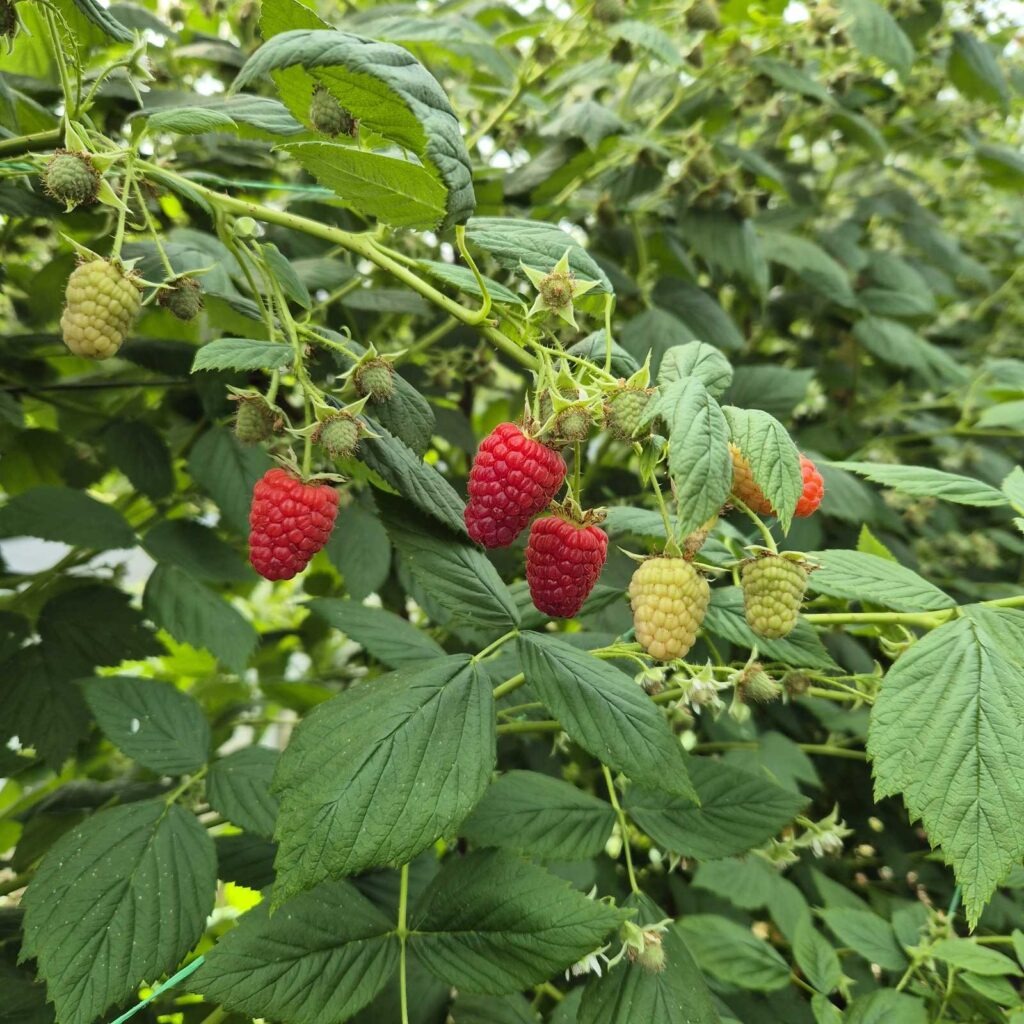
Most of the raspberry production in Serbia is exported as frozen products for processing. This traditional industry was at a crossroads thanks to the combined pressures of climate change, market trends, and supply chain instability. To address these challenges, the USAID-funded Big Small Businesses Project partnered with Drenovac, a reputable firm in the raspberry trade, to design a pilot targeting primary producers. Drenovac, as an aggregator, brought together five young traditional producers from Arilje (located in Southwest Serbia) to pioneer a shift from frozen to fresh raspberry production.
The initiative began in March 2024 and involved setting up greenhouses at five locations, each spanning 500m². Drenovac provided financial support and expertise, focusing on cultivating the rare and highly sought-after Sky variety. This variety, ideal for fresh market sales, promises significantly higher prices than traditional frozen raspberries. Also, weather stations were installed next to each greenhouse to mitigate the impact of unpredictable climate.

By mid-June, the first harvest began, surpassing expectations. The raspberries were distributed through local retail chain Gomex, distributor Agrobel System, and the online platform Vaša bašta (Your Garden). This approach extended the harvest season to two five-month periods, compared to the traditional one-month season, resulting in an anticipated sales volume of around 10,000 kg for 2024.

The success of the project was driven by timely agrotechnical measures, precise plant management, and strong market demand. Digital precision technology and e-commerce played crucial roles in production and distribution, highlighting the importance of online tools in marketing premium products. The project’s success attracted interest from larger German buyers, prompting Drenovac to plan for expansion by setting up 15 greenhouses in the following season.
A key aspect of the initiative was engaging young smallholders, and fostering their continued presence in rural areas. The profitability of intensive greenhouse production provided a significant income supplement without replacing traditional open-field growing. This pilot project demonstrated the potential for scale-up, as more aggregators are likely to replicate the model, ensuring the sustainability and profitability of Serbian raspberry production in a changing climate.
Learn more about the Big Small Businesses Project.
Learn more about our work in Serbia.








